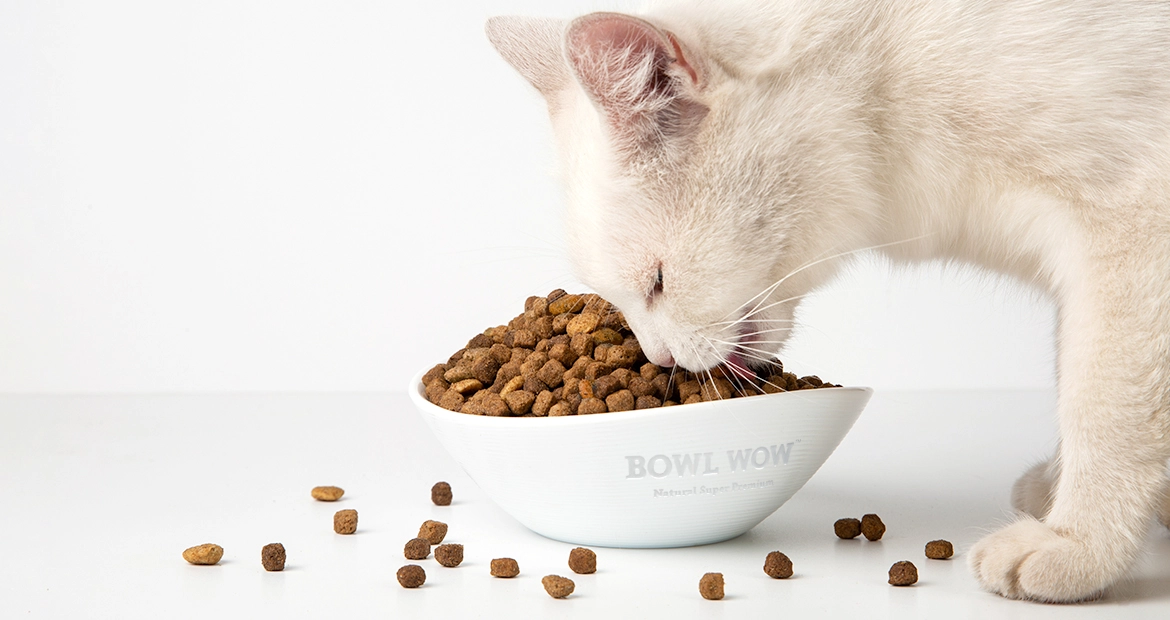What factors influence palatability of cat food?

Why do cats readily consume some foods but avoid others? The most crucial elements of palatability are the taste and flavor characteristics of animal feeds. Let's examine the factors that affect a food's appeal to your dogs.
Other elements, such as moisture content, fat and protein content, quality of the meat ingredients, and acidity, also contribute to taste, flavor, and texture. All these factors are taken into account when developing BOWL WOW ratios. We only utilize extraordinarily high-quality meat products and animal fats to ensure palatability. Separately should be said about fish oil and turkey fat.


FISH OIL
Fish oil is not a medicine, but a valuable food additive extracted from the meat or liver of cold-water fish: for example, trout, chum salmon, pink salmon, tuna, cod or pollock. This natural product is useful for both people and their pets, including cats.
- Eicosapentaenoic (EPA) and docosahexaenoic (DHA) Omega-3 fatty acids in fish oil have a beneficial effect on the joints of animals — in particular, they improve pain and inflammation, enabling cats to move with no limitations and live an active life until old age.
- Docosahexaenoic acid is required for brain health in both early and old age.
- EPA and DHA reduce itching and inflammation of the skin caused by allergies. The intake of fish oil makes the skin and hair of a cat beautiful and healthy.
- Consumption of fish oil has a positive impact on the heart and blood vessels of cats with heart failure, arrhythmias, and high blood pressure.
- Fish oil is indicated for kittens to help form a healthy visual system. Pets who regularly receive this additive are vigilant and can see perfectly in the dark from childhood to old age.
- Omega-3 acids present in fish oil reduce the protein content in the urine, which positively affects the condition of the pets’ kidneys.
- Alpha-linoleic (ALA) fatty acid in fish oil prevents strokes and fights high cholesterol. Moreover, ALC improves memory.
- Vitamin A in fish oil is responsible for the health of the skin and mucous membranes, improves the pets’ eyesight, and strengthens their respiratory system.

TURKEY FAT
Turkey fat is a quite rare source of animal fat in ready-made pet foods. But we do use it, because turkey fat is highly digestible, rich in omega-6 fatty acids, and contains high amounts of vitamins D and E, as well as choline. The latter is a structural component of phospholipids, and it balances the levels of insulin and cholesterol in the body, and also contributes to the proper metabolism of fats. The most important neurotransmitter, acetylcholine, a transmitter of nerve impulses, is synthesized from choline in the body.
It is also worth noting that during the production cycle, fats are applied as a liquid spray to each feed pellet, providing excellent taste and an appealing aroma.
As it can be seen from the above, the carriers of taste and aromatic attractiveness are the most valuable components in the metabolism of the pet's body; this is a ‘vicious circle’ in the finest sense. We at BOWL WOW do know how to make not only a delicious, but also a healthy diet that will ensure your pet’s health.



